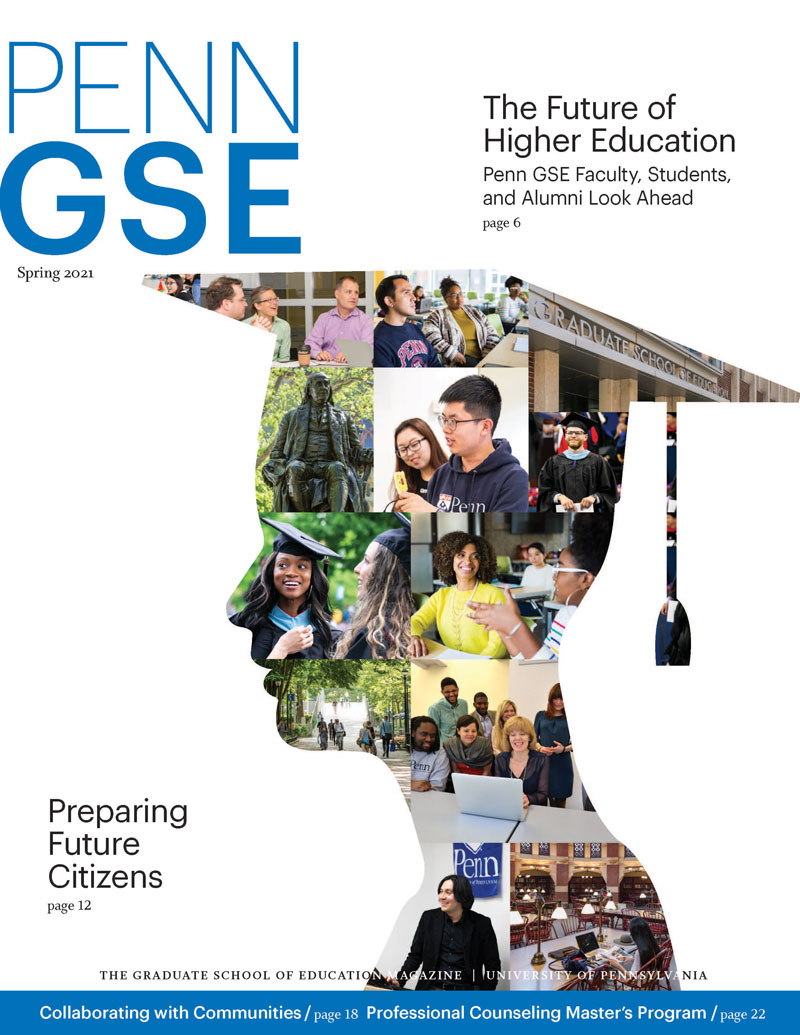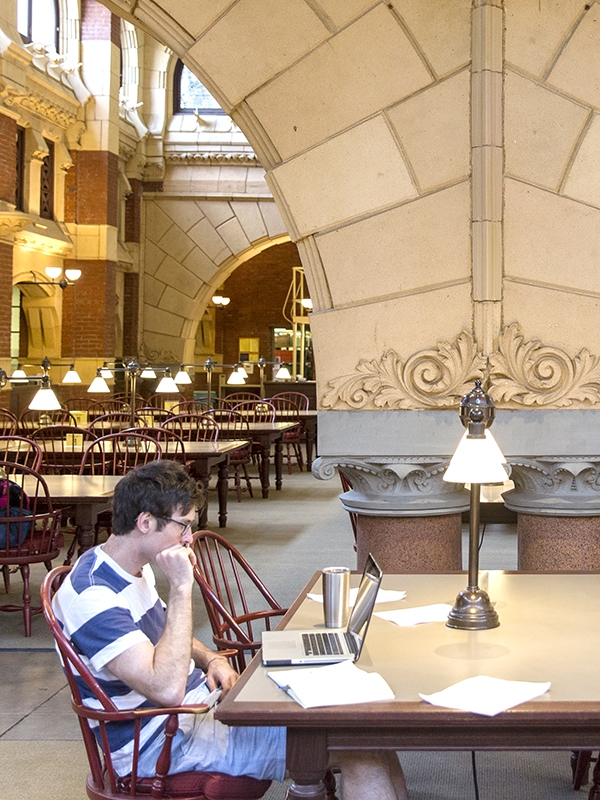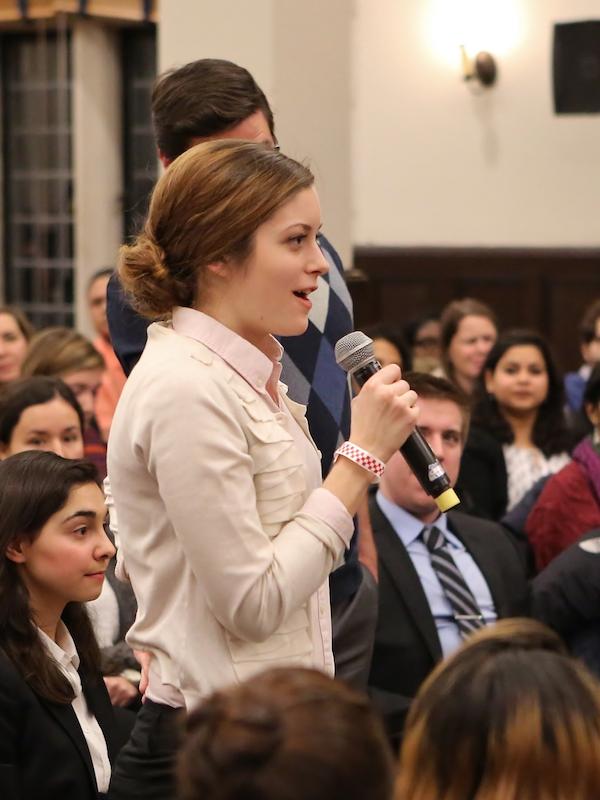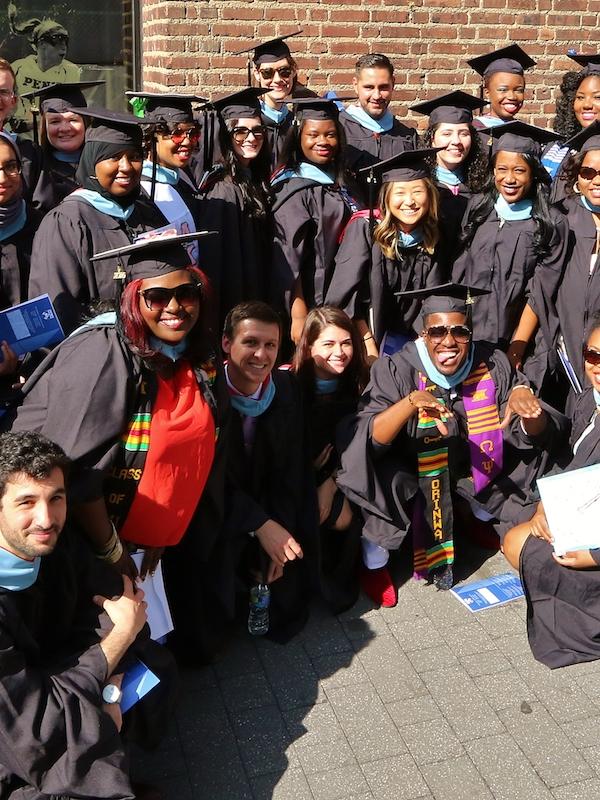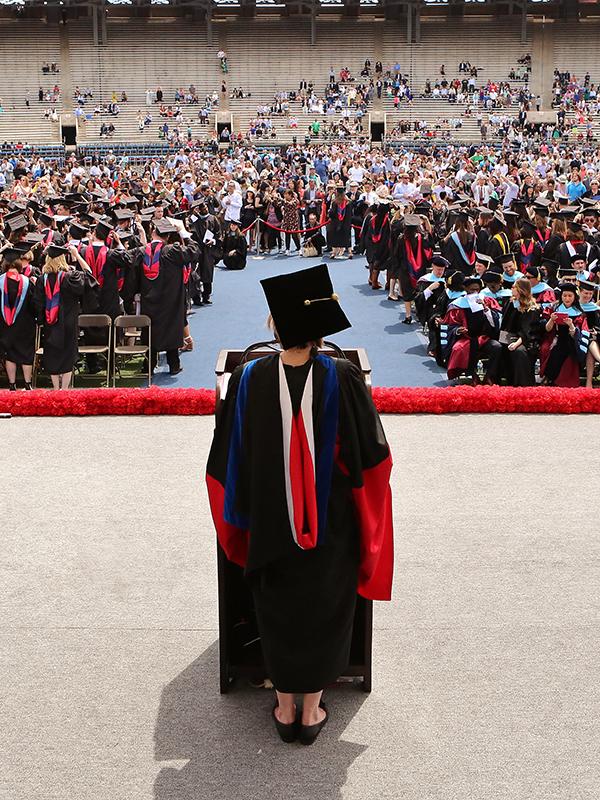Professional Counseling Master’s Program Trains Future Therapists Amid a Pandemic
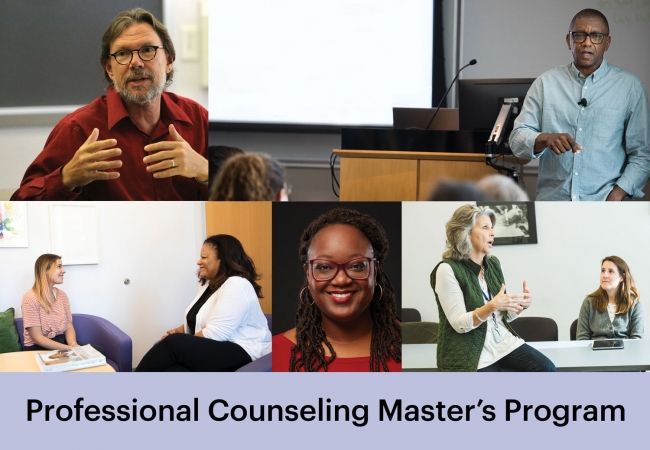
Clockwise from top right are Penn GSE Professional Counseling program faculty Drs. Howard Stevenson, Caroline Watts, Ariane Thomas, Marsha Richardson, and Michael Nakkula. Photos by Chris Kendig, Lora Reehling, Goldenberg Photography, Ryan Collerd, and Darryl W. Moran Photography
by Stephanie Berrong
“Do you have any homework you need help with?” It is one of the first questions AC Conwell, GED’20, asks her clients when she meets with them, working online from her apartment in Philadelphia. As a middle school counseling intern for the General George G. Meade School in North Philadelphia, she has learned that such practical considerations must be dealt with first. “Obviously this is a space for them to talk about their emotions, but it’s really hard to do that when you’re thinking about the homework assignment that’s late,” she explains.
For students from the public school for prekindergarten to eighth grade, who have been distance learning since last March, the question is also an invitation to make a very concrete connection with their counselor. By spending early moments of a session on homework, Conwell hopes to help students relax and feel comfortable discussing other concerns with her, whether they are sad or anxious or struggling to understand and process the many national crises of the past year.
As a student herself in Penn GSE’s Professional Counseling master’s program, Conwell is by now well accustomed to virtual learning. Her internship at the Meade School, as well as her coursework, have highlighted the urgency of this moment for mental health professionals while preparing Conwell to meet it.
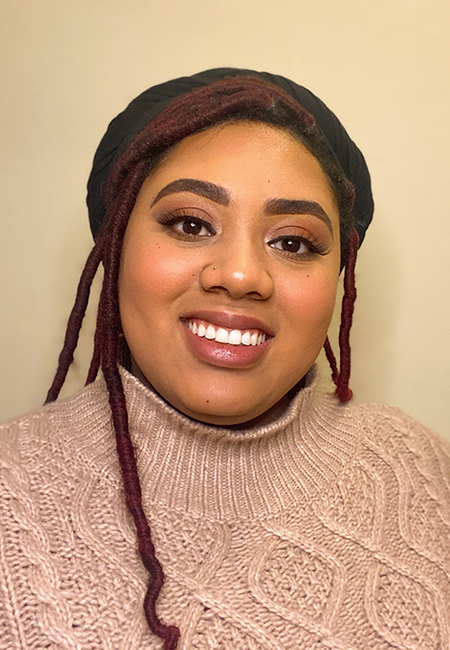
Conwell is a graduate of Penn GSE’s one-year Counseling and Mental Health Services M.S.Ed. program. She and over thirty of her classmates opted to continue their studies for a second year of advanced counseling training in the Professional Counseling M.Phil.Ed. program.
According to Penn GSE Lecturer in Educational Practice Ariane Thomas, the program’s associate director for professional training, the two-year program serves as a gateway to careers in psychology, mental health counseling, school counseling, and research. The first year provides foundational skills and a degree that can be applied towards a variety of professional paths. Some first-year graduates, for example, attend medical school or matriculate into a doctoral program for psychology.
Students who undertake the second year receive a more targeted and intensive experience to prepare them to qualify for licensure and school certification. They must complete twenty hours per week in a field internship like Conwell’s with the Meade School, an increase from eight to ten hours per week of practicum work in their first year. Penn GSE courses inform students’ internship experiences through a comprehensive psychology-based counseling curriculum, bolstered by practical advice from faculty, many of whom maintain small private practices themselves.
“We want students to leave the program knowing that they will be sensitive and compassionate professionals who are responsible for the delivery of mental health services to vulnerable populations,” Dr. Thomas says.
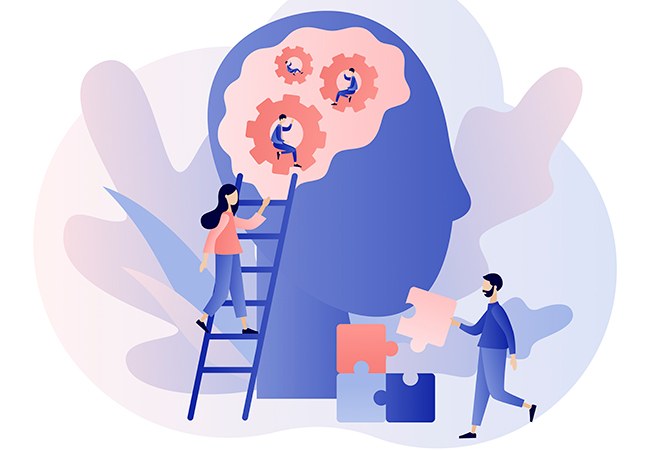
Students’ field internships are aligned as much as possible with their long-term professional goals. The program has established relationships with a range of organizations, including public and independent schools, community mental health centers, inpatient psychiatric hospitals, and private practices.
Zhengtian (Leo) Hao, GED’20, is a second-year master’s student from China. He discovered the power of counseling during an internship at a psychiatric hospital in Beijing. Hao, who hopes to stay in the United States after graduating, aspires to work with immigrants or the elderly, whom he thinks could be particularly in need of counseling therapy after the pandemic. “They are a population that was highly affected by the virus, and a lot of elderly experienced losses during the pandemic,” he says.
In his field placement at The Consortium, Inc., a nonprofit community mental health center based in West Philadelphia, Hao treats clients with a variety of psychiatric diagnoses. Like Conwell, Hao meets one-on-one with his clients on his computer from his apartment. He helps them address issues of addiction, trauma, anxiety, and, of course, the impact of the pandemic.
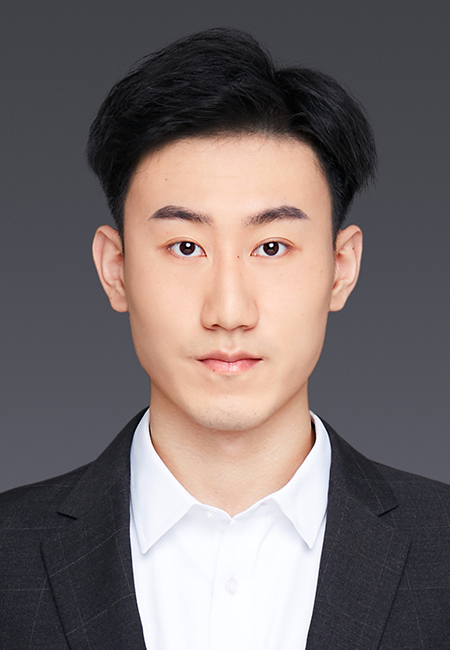
The latter has offered Professional Counseling students unique opportunities for personal and professional growth. This year’s cohort, many of whom are living far from family and friends, have faced some of the same challenges of an unprecedented worldwide health crisis as their clients: stress caused by social isolation, economic distress, and increased anxiety about one’s personal health and safety or those of loved ones.
Hao says he had rarely heard the term “self-care” before this year and had not been practicing it, but faculty in the master’s program as well as colleagues at The Consortium emphasized its importance. He now meditates every day, exercises three times a week, and has set boundaries between his professional and personal lives.
Both he and Conwell concede that completing an internship remotely presents its own challenges in terms of building relationships. “I’m the kind of person who tries to pick up on body language, and half of my communication is implicit,” Conwell says. “It’s been a longer process to build connections with students, especially when they don’t like to turn on their cameras.”
Conwell and Hao find support in their coursework and the online community of other students and program faculty. “Despite being online, my cohort has been doing everything we can to make it easier for each other,” Conwell says. “If it wasn’t for them, this would’ve been much more difficult.”
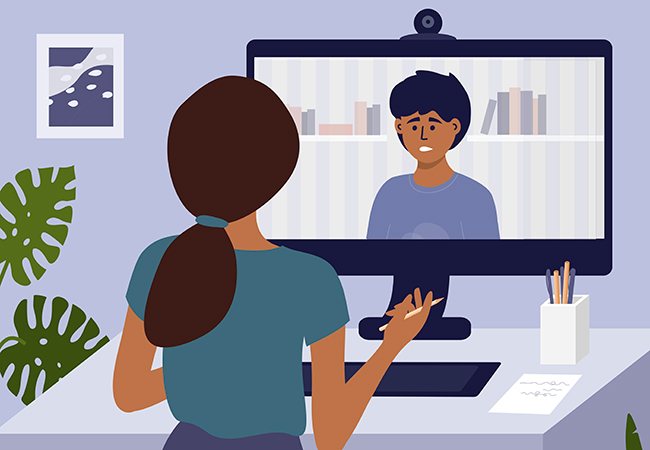
Thomas notes that the current era has brought students and faculty together in heightened ways despite the physical distance between them. “While taking care of other people, we’ve also had to do a very good job of trying to take care of one another. During class, we’re talking about self-care, what the stressors are, and how we’re dealing with them,” she says. “I’m a Black woman, so I’ve had my own struggles dealing with the radical way in which America has been forced to face its racial history, as have many of our students, and those issues have come across as we share insights and support each other as a community.”
Even with all of the challenges, both students report that their experiences in the program have been invaluable. Hao says one of the most rewarding aspects has been the opportunity to develop his clinical style as a therapist. “I can see my confidence and clinical intuition improved after interacting with clients,” he says, adding that the validation he has received from clients, colleagues, and peers has assured him that he is on the right path.
Conwell likewise feels affirmed in her professional route. “All of my interactions, challenging and easy, truly helped me solidify that I do love working in education and that helping these children is what I really want to do with my life,” she says.
This article appeared in the Spring 2021 issue of The Penn GSE Magazine.

